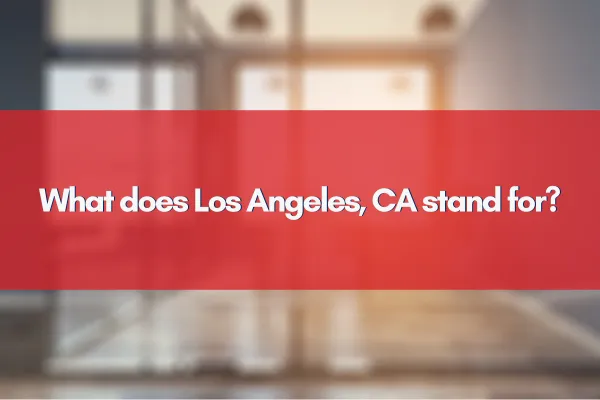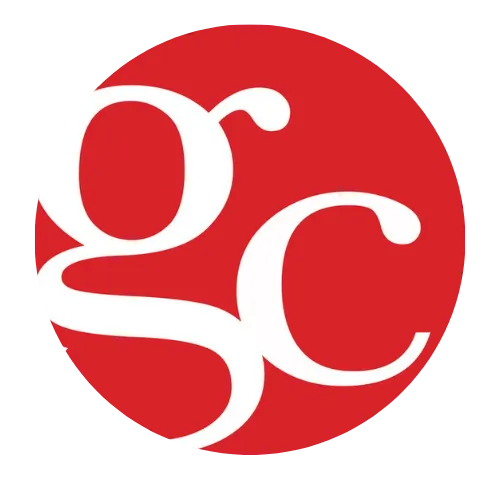How Much Is Your Home Worth?

What does Los Angeles, CA stand for?
What does Los Angeles, CA Stand For?
Look around today — palm trees, film cameras, traffic jams, the Hollywood sign. But have you ever stopped for a moment and thought, What exactly does Los Angeles, CA stand for? I promise you, it’s not just another city name thrown out like a hashtag or a catchy phrase. It carries centuries of history, language, culture, and some really intriguing stories worth telling. So grab your virtual walking shoes as we journey through time and uncover the meaning of Los Angeles CA — and why this city’s name is more compelling than your favorite Netflix docuseries.
The Origins — Spoiler Alert: Angels Are Involved
Los Angeles literally means "The Angels" in Spanish. It sounds straightforward, but the story behind this name is a mosaic of explorations, religious symbolism, and native interactions.
Back on August 2, 1769, Father Juan Crespi, a Franciscan priest traveling with the first Spanish land expedition through California, came across a "beautiful river from the northwest." In his journal, he named it Nuestra Señora de los Angeles de la Porciúncula, which translates to Our Lady of the Angels of the Porciúncula.
Now here’s some Steve Jobs-style magic for you: This river’s name wasn’t just pulled out of thin air. August 2nd marked a special day—the Feast of the Perdono—in the Franciscan calendar, linked to a tiny chapel near Assisi, Italy, called the Porziúncula (which means “very small parcel of land”). Painted behind its altar was a fresco depicting the Virgin Mary surrounded by angels. This chapel’s formal name was Saint Mary of the Angels at the Little Portion.
Fast forward a dozen years later to 1781 — settlers established a small community on the banks of that same river. That new settlement’s original name? Well, it’s a historical puzzle!
The Naming Debate: A City Wrapped in Angels and Queens
Here’s where the plot thickens. Historians actually argue over the original name of Los Angeles.
Doyce B. Nunis Jr., a respected LA historian, claims the town was called El Pueblo de la Reyna de los Angeles — translated, The Town of the Queen of Angels.
Others, led by Monsignor Francis J. Weber, archivist of the Los Angeles Archdiocese, insist it was El Pueblo de Nuestra Señora de los Angeles de Porciúncula — or The Town of Our Lady of the Angels of Porciúncula — directly continuing from Father Crespi’s river name.
Adding to the intrigue, the earliest surviving handwritten map of 1785 (found at UC Berkeley’s Bancroft Library) shows El Pueblo de la Reyna de los Angeles. Did someone get a bit creative with 'Queen of Angels'? Apparently so! Weber suggests “Reyna” or “Reina” (Queen) was likely added later by mistake or local custom, confusing what had been the more religiously inspired name.
Other variations that pop up in historical documents include:
El Pueblo de la Reina de los Angeles Sobre el Rio de Porciúncula
El Pueblo de Nuestra Señora la Reyna de los Angeles del Rio Porciúncula
…and a few more chants of angels and queens by whichever scribe wrote them down.
Why Does This Matter Today?
You might think, "Isn’t it just fancy old names?" Not at all. The meaning of Los Angeles CA reflects the city’s core origins — spiritual, cultural, and geographic — that ripple into its identity today. Understanding its name is like finding the first pixel in a vast digital image.
Here’s why it matters:
Cultural Impact: The name represents the Spanish and Franciscan heritage foundational to California's colonization and history.
Geographic Roots: The river Father Crespi named remains central to the city's ecology and urban planning.
Community Identity: The dual meaning — angels and queens — opens conversations about faith, history, and cultural blending.
City planners and historians still invoke these names during festivals, restoration projects, and educational programs across Los Angeles. Even the LA River revitalization projects reconnect modern Angelenos with their city's original lifeline.
Quick Facts for Your Next Trivia Night
Los Angeles means “The Angels” in Spanish — straightforward, right?
The original river was named Nuestra Señora de los Angeles de la Porciúncula — "Our Lady of the Angels of the Little Portion."
The first European to document the river was Father Juan Crespi in 1769.
The founding settlement was established in 1781 along this river.
Historians debate whether the original town name included “Queen of Angels” or not.
The name reflects both religious tradition and early Spanish colonization.
LA officially became an American city in 1850, keeping the name Los Angeles.
The City’s Name in Pop Culture and Beyond
Los Angeles, CA isn’t just a name on a map; it’s a brand. From Hollywood movies to hip-hop lyrics, thousands of artists have spun the city’s name into stories that feel like angelic calls or sometimes devilish dramas. But at its core, every mention is tied to that original spirit — a city born beside a river dedicated to angels and saints.
For businesses, real estate agents, and marketers, incorporating the meaning of Los Angeles CA into narratives invites authenticity. It builds a connection stronger than typical references to glitz or tacos (although tacos are pretty amazing).
FAQs on the Meaning of Los Angeles, CA
Q1: What exactly does Los Angeles stand for?
Los Angeles translates to The Angels in Spanish, originating from the full name given to a river by Spanish explorers: Nuestra Señora de los Angeles de la Porciúncula.
Q2: Was Los Angeles originally called “The Queen of Angels”?
There is historical debate. Some documents from the 1780s indicate the settlement might have been called El Pueblo de la Reyna de los Angeles (“Queen of Angels”), but other records dispute this, favoring the “Our Lady of the Angels” origin.
Q3: When did Los Angeles become an American city?
Los Angeles officially became part of the United States in 1850, retaining its Spanish name.
Q4: Is the city’s name connected to religion?
Yes, the original name and many variations link directly to Catholic traditions and the Spanish Franciscan missions.
Final Thoughts: When History Meets Modern Los Angeles
The meaning of Los Angeles CA is not just a linguistic trivia. It’s an emblem of a rich, layered tapestry of stories, culture, faith, and geography that shapes who we are — whether you’re an Angeleno sipping coffee in Silver Lake or a visitor chortling in Santa Monica.
The next time someone asks, “What does Los Angeles stand for?” you can wow them with this nugget: It’s The Angels, rooted firmly in a Spanish Franciscan legacy and a riverside chapel thousands of miles away from the beaches and freeways we know today.
So, whenever you see those majestic angels on murals, or the Hollywood sign above the hills, remember — the story here has history, mystery, and maybe even a little divine inspiration.
Ready to explore more about Los Angeles or find your dream home in this angelic city? Reach out today!
📞 Contact: Grace Globus
📍 Title: Realtor
📲 Phone: 310-779-0058
📧 Email: [email protected]
🌐 Website: gracesellsla.com
If you enjoyed this story and want to dive deeper into the history, culture, and real estate of Los Angeles, leave a comment or share this post with your fellow city explorers!





